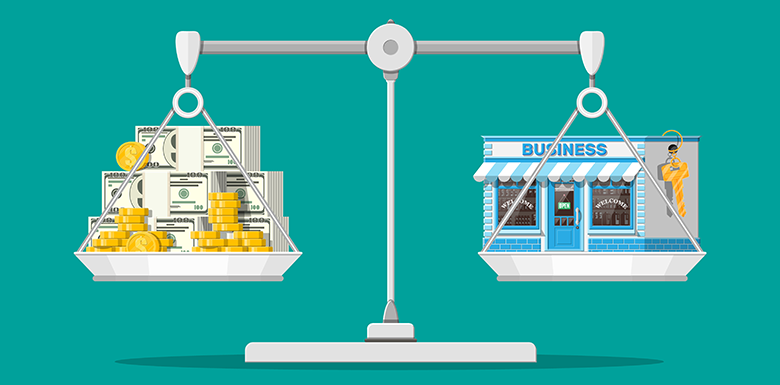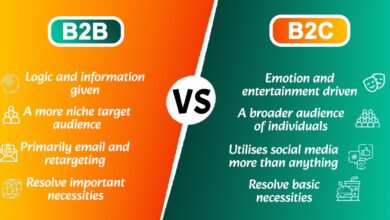
Starting or buying a business is a significant decision that can shape your financial future and career path. Both options have their advantages and disadvantages, and the choice between them depends on various factors, including your goals, skills, resources, and risk tolerance. This guide will help you evaluate whether it’s better to start a new business or buy an existing one, for example you can browse great resources on bizroutes to start or buy routes for sale and you can make a informed decision!
Understanding Your Goals and Preferences:
Before deciding whether to start or buy a business, take the time to understand your personal and professional goals, skills, and risk tolerance. This self-assessment will provide valuable insights into which option aligns better with your aspirations.
- Define your long-term objectives: Determine what you want to achieve with your business, such as financial independence, creative freedom, or social impact.
- Assess your skills and expertise: Evaluate your strengths and weaknesses, and identify areas where you excel. Consider whether you have the necessary skills to start and run a business from scratch.
- Evaluate your risk tolerance: Determine how comfortable you are with uncertainty and financial risk. Starting a new business typically involves more risk than buying an established one.
Starting a Business:
Starting a business from scratch offers a unique set of advantages and challenges:
Advantages:
- Creative control: You have the freedom to build a business entirely according to your vision.
- No previous owner’s legacy: You won’t inherit any pre-existing problems or reputational issues.
- Customization: You can create a business that aligns perfectly with your goals and values.
Challenges:
- High initial risk: Starting from scratch means you’re starting with no customer base or proven revenue, which can be financially risky.
- Building a brand and customer base: It takes time and effort to establish your brand and attract customers.
- Longer time to profitability: New businesses often take time to become profitable, which can strain your resources.
Steps to Start a Business:
- Idea generation and feasibility study.
- Business plan development.
- Legal structure and registration.
- Funding and financing.
- Location and infrastructure.
- Product/service development.
- Marketing and sales strategy.
- Hiring and training employees.
- Launch and ongoing management.
- Growth and scalability planning.
Buying an Existing Business:
Buying an existing business offers several advantages and comes with its own set of challenges:
Advantages:
- Established customer base and revenue stream.
- Existing brand and reputation.
- Proven products/services.
Challenges:
- Higher initial investment: You’ll need more capital upfront to acquire an existing business.
- Adaptation to existing processes: You may need to make changes to align the business with your vision.
- Potential hidden issues: Existing businesses may have undisclosed problems that you’ll need to address.
Steps to Buy an Existing Business:
- Identify target businesses.
- Valuation and negotiation.
- Due diligence and financial analysis and checking for red flags
- Legal and contractual considerations.
- Financing and funding.
- Transition planning.
- Ownership transfer.
- Integration and improvement.
Financial Considerations:
Consider the financial aspects of both options:
- Initial investment: Determine how much capital you can invest and whether it’s sufficient for your chosen path.
- Revenue potential: Analyze the potential for revenue and profit in the short and long term.
- Financing options: Explore sources of financing, such as loans, investors, or personal savings, to fund your venture.
Market Research and Analysis:
Evaluate the market conditions for your business:
- Market demand and competition: Research the demand for your product or service and assess the level of competition.
- Industry trends: Stay informed about industry trends that may impact your business.
- Location analysis: Consider the geographical location and its relevance to your business.
Legal and Regulatory Factors:
Understand the legal and regulatory requirements:
- Business licenses and permits: Determine the licenses and permits needed to operate legally.
- Contracts and agreements: Review existing contracts and agreements.
- Intellectual property considerations: Address any intellectual property issues related to the business.
Due Diligence:
Thoroughly investigate the business you plan to buy:
- Financial records and statements: Examine financial statements and records to assess the business’s financial health.
- Inventory and assets: Confirm the condition and value of assets, including inventory.
- Liabilities and debts: Identify any outstanding debts or legal obligations.
Transition and Integration:
Plan for a smooth transition:
- Employee management: Communicate changes to employees and ensure a smooth transition.
- Customer retention: Develop strategies to retain existing customers during the transition.
- Supplier relationships: Maintain positive relationships with suppliers and vendors.
Risk Management:
Identify and mitigate risks associated with your chosen path:
- Identifying and mitigating risks: Assess potential risks and develop strategies to mitigate them.
- Developing a contingency plan: Plan for unforeseen challenges that may arise.
- Insurance considerations: Explore insurance options to protect your business and investments.
Exit Strategy:
Plan for the long term, including an exit strategy:
- Planning for the future: Consider your long-term goals and how they align with the business.
- Selling a business: Determine when and how you might sell the business, if necessary.
- Succession planning: If applicable, plan for passing the business on to a successor.
Final Decision and Action Plan:
After thoroughly evaluating all factors, create a comprehensive business plan and seek professional advice. Your decision should align with your goals, skills, and risk tolerance. Develop a detailed action plan to execute your chosen path effectively.
Conclusion:
Starting or buying a business is a significant decision that requires careful consideration of various factors. By understanding your goals, conducting thorough research, and weighing the pros and cons of each option, you can make an informed decision that sets you on the path to entrepreneurial success. Remember that both starting and buying a business can lead to prosperity if approached with dedication and careful planning.




